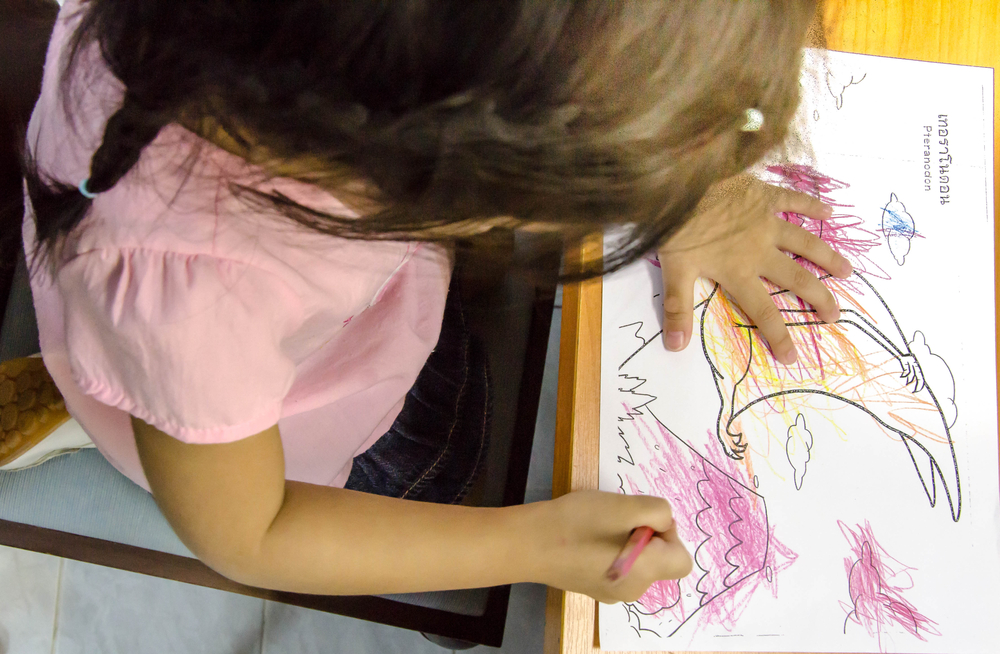Basic geometry understanding Math Worksheets for Ages 6-8
10 filtered results
-
From - To
Explore our engaging Basic Geometry Understanding Math Worksheets designed specifically for children aged 6-8. These worksheets make learning shapes, angles, and spatial reasoning fun and interactive! Our resources foster a solid foundation in geometry, helping young learners identify and classify 2D and 3D shapes while enhancing their math skills. With colorful illustrations and age-appropriate exercises, kids can practice measuring, drawing, and recognizing patterns, all at their own pace. Perfect for classroom use or home learning, these worksheets encourage mathematical exploration and boost confidence in young learners as they embark on their geometry adventure. Start shaping their geometry skills today!
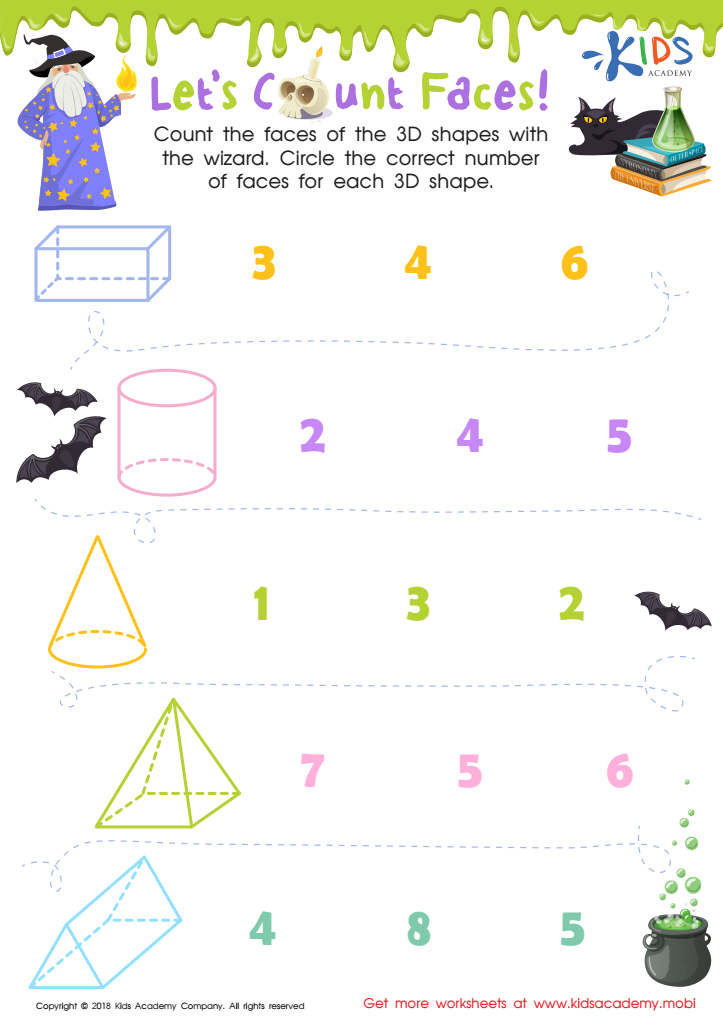

Let's Count Faces! Worksheet
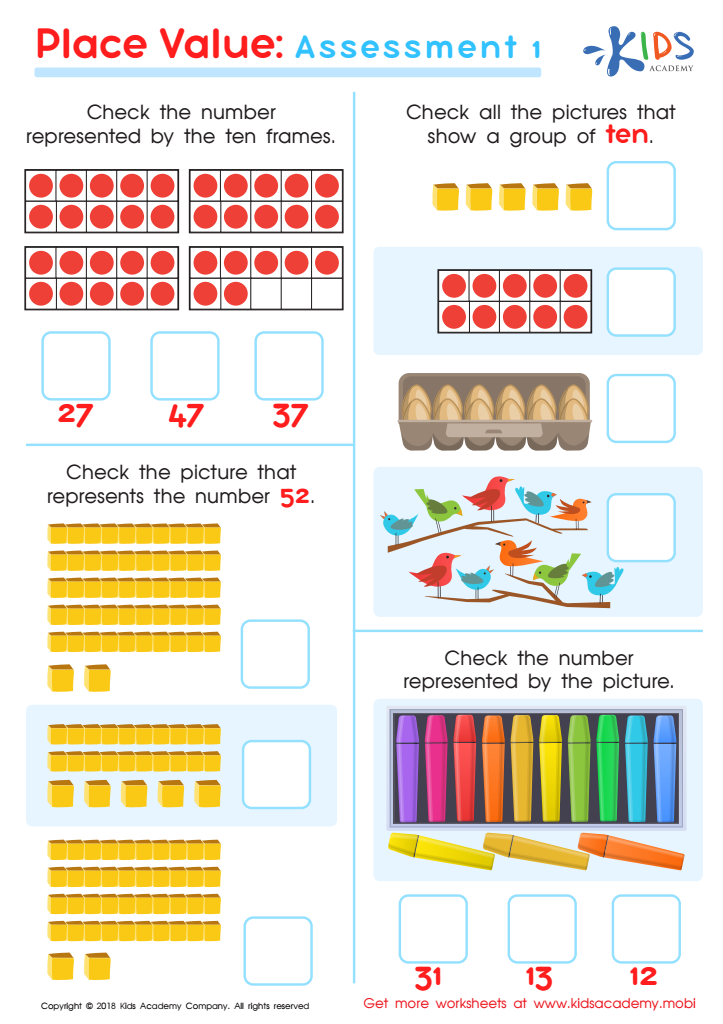

Place Value: Assessment 1 Worksheet
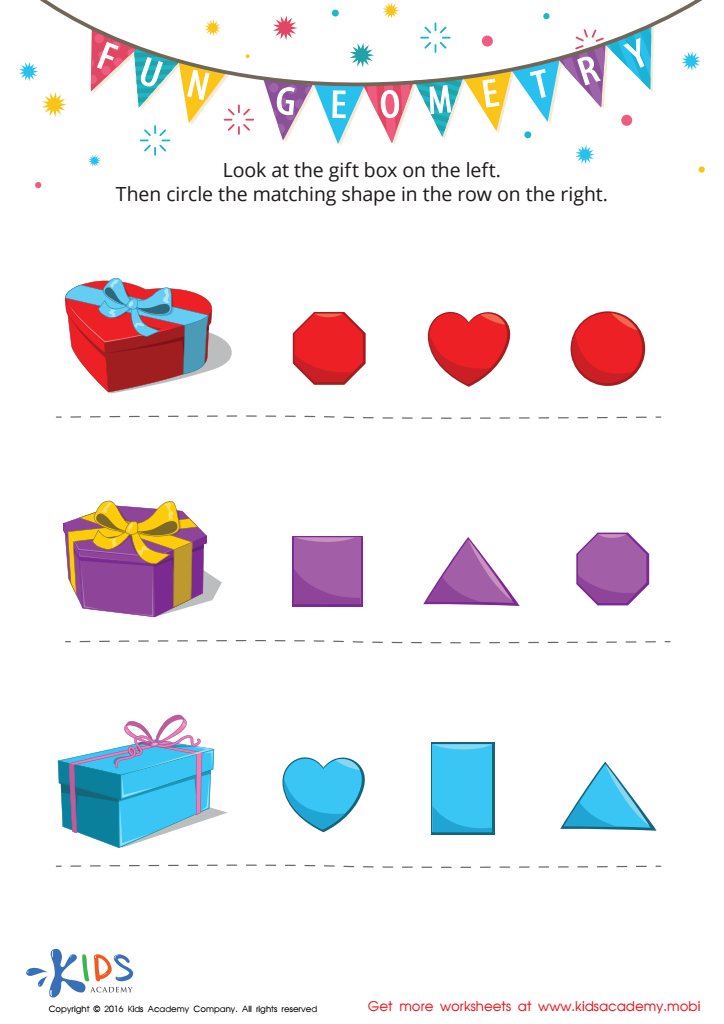

Fun Geometry Worksheet
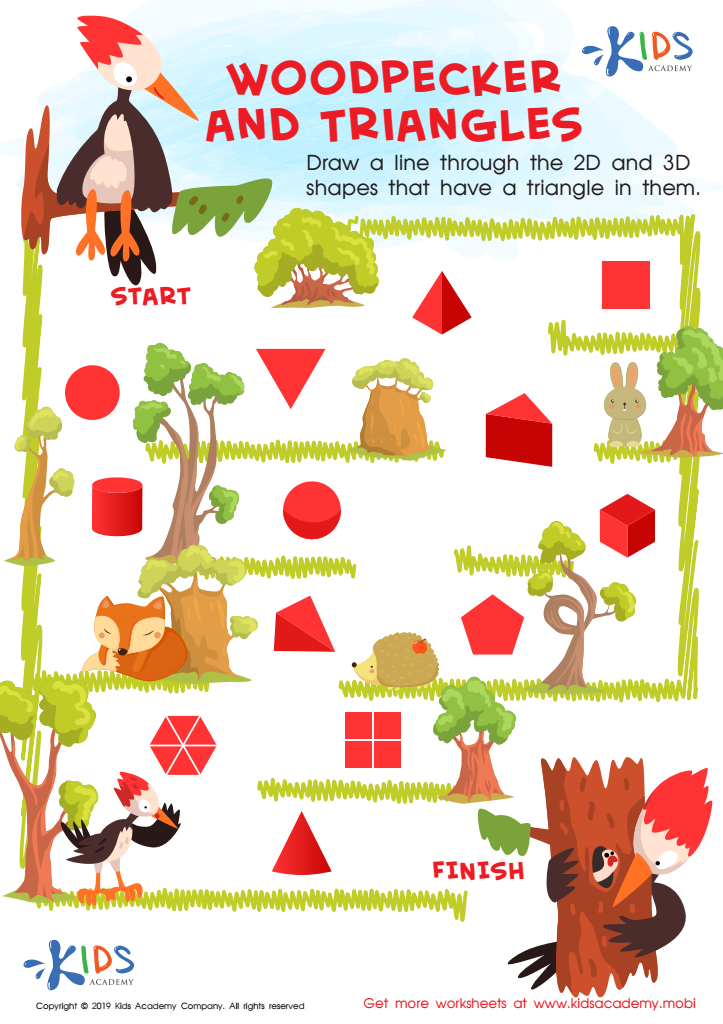

Woodpecker and Triangles Worksheet
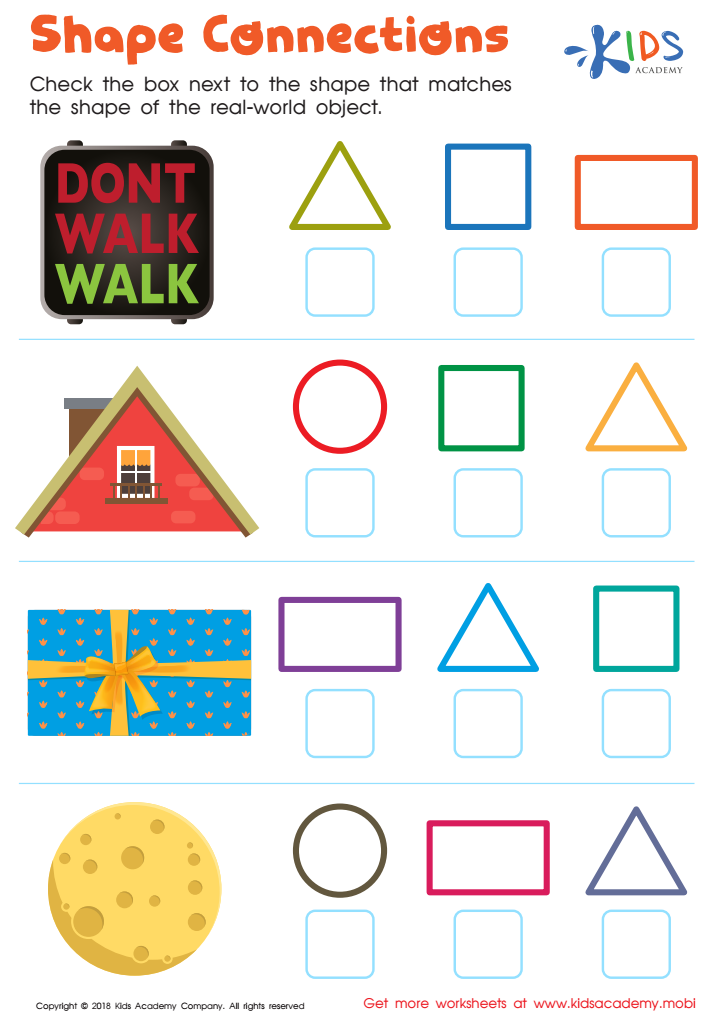

Shape Connections Worksheet
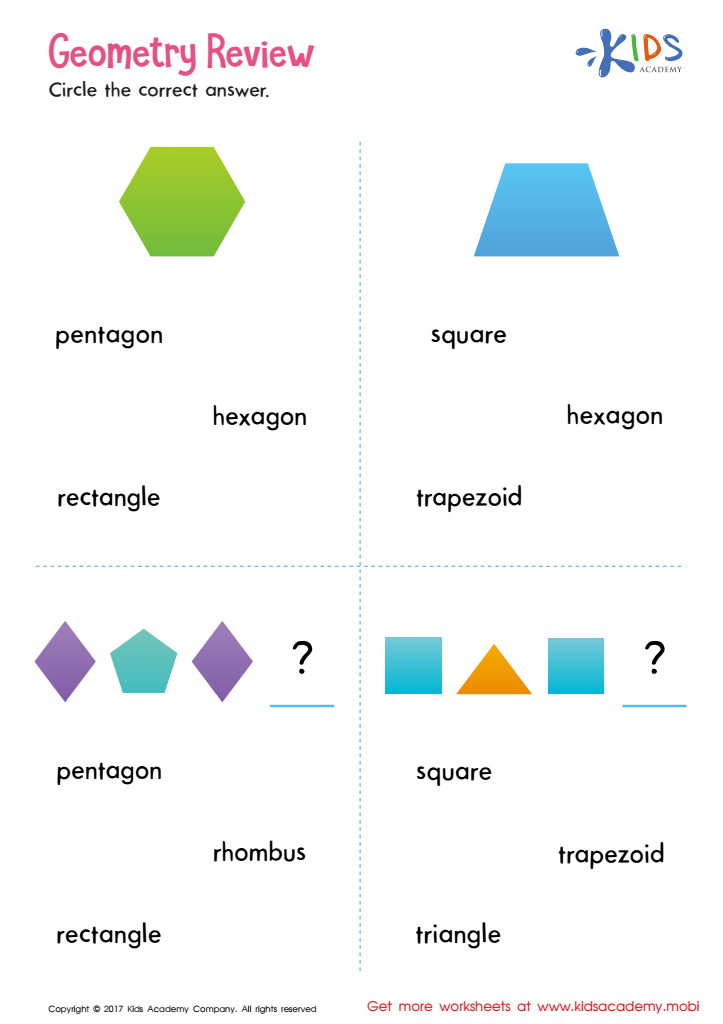

Geometry Review Printable
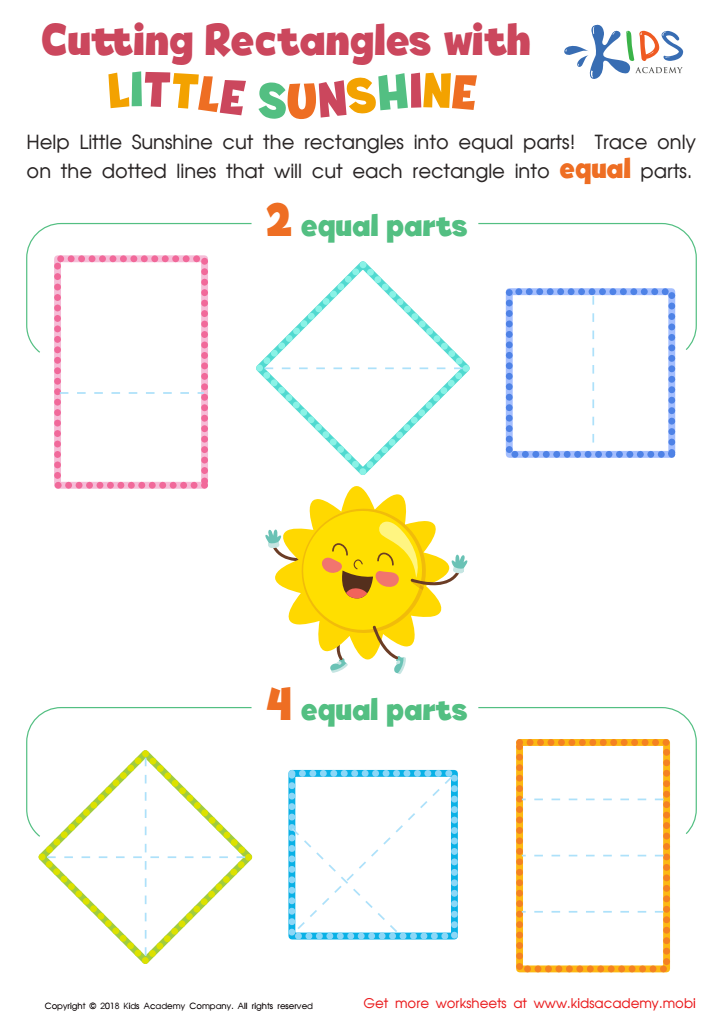

Cutting Rectangles with Little Sunshine Worksheet
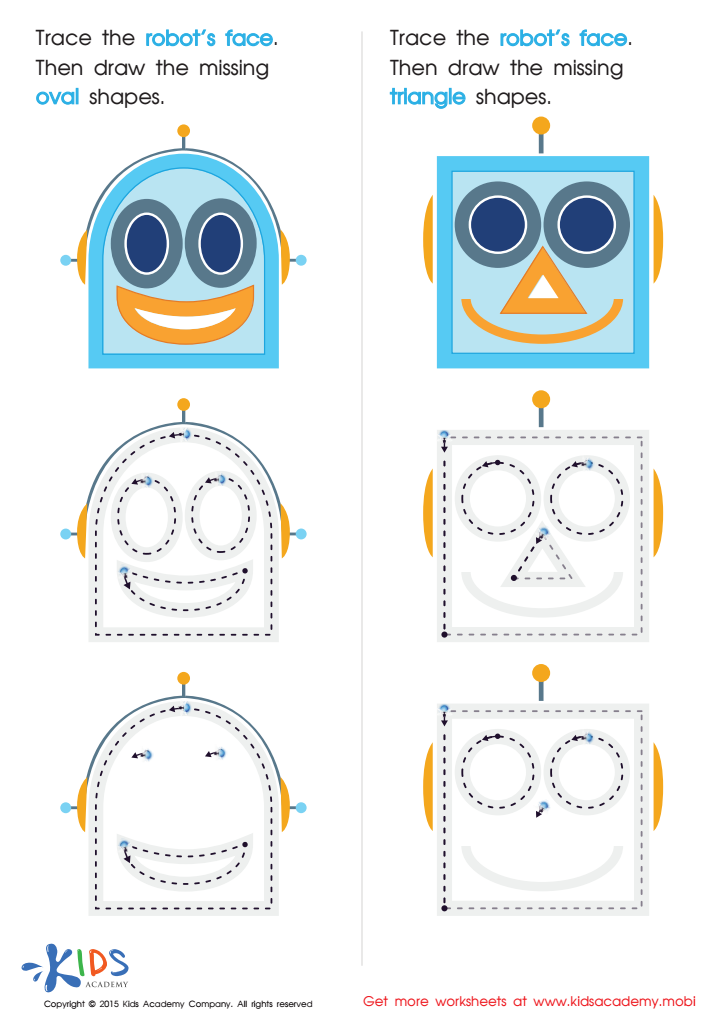

Drawing Ovals And Triangles with Fun Printable
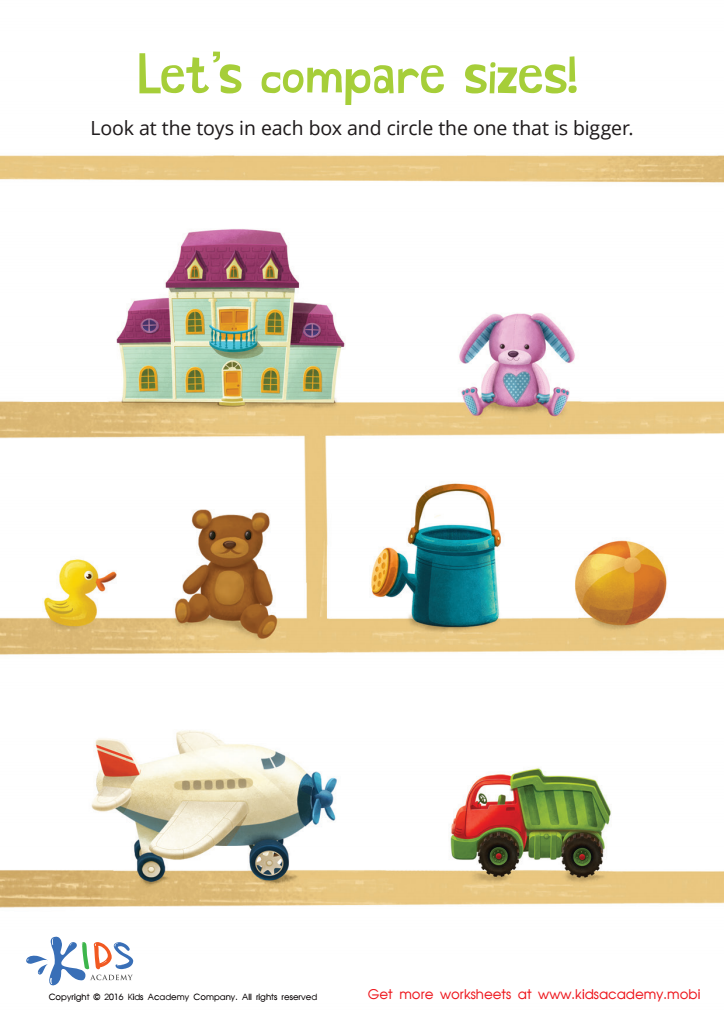

Classifying by Size Sorting Worksheet
Basic geometry understanding for children ages 6-8 is crucial for several reasons. First, these foundational skills help enhance spatial awareness and encourage critical thinking. At this developmental stage, children begin to recognize shapes, sizes, and spatial relationships, which lays the groundwork for more complex math concepts. A strong grasp of geometry fosters problem-solving skills that are applicable in everyday life, such as understanding maps, reading graphs, or even arranging furniture.
Moreover, geometry is not just about shapes; it fosters creativity. It encourages children to visualize and analyze their environment, leading to improved artistic expression and innovative thinking. Integrating geometry into daily activities, such as cooking or crafting, gives children practical applications for their math skills.
Additionally, a solid foundation in geometric concepts sets the stage for future math success, reducing anxiety around later subjects like algebra or calculus. Parents and teachers play a pivotal role in nurturing this understanding through engaging, hands-on activities, which can ignite a love of learning and curiosity. Overall, a focus on early geometry education enriches children's intellectual growth and prepares them for a wide range of future academic experiences and real-world problem-solving.
 Assign to My Students
Assign to My Students

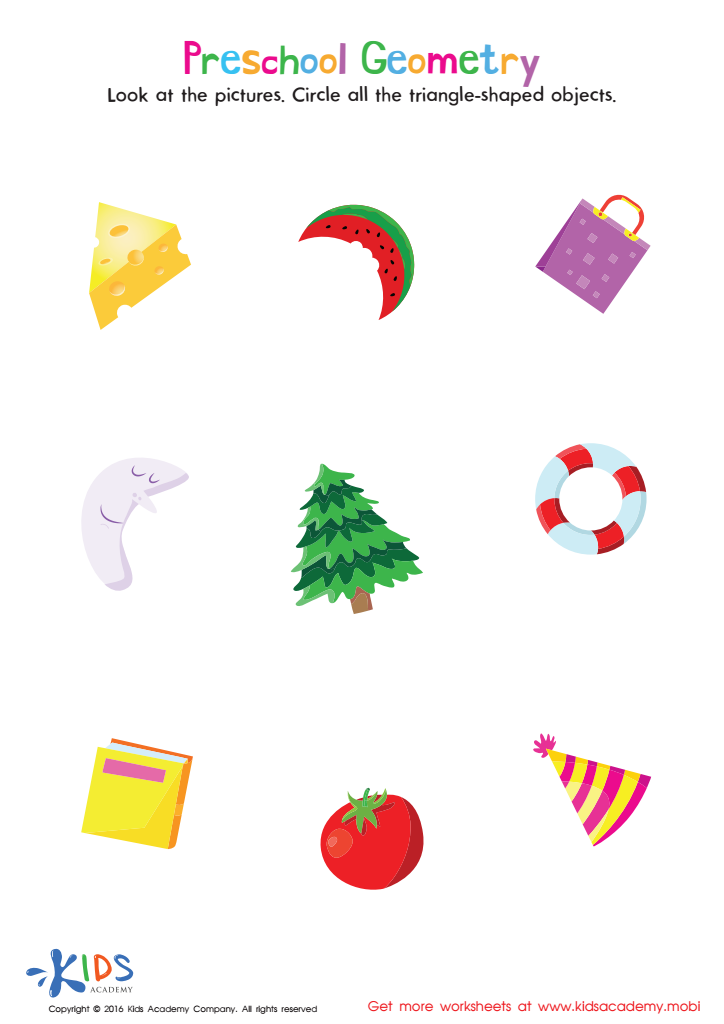




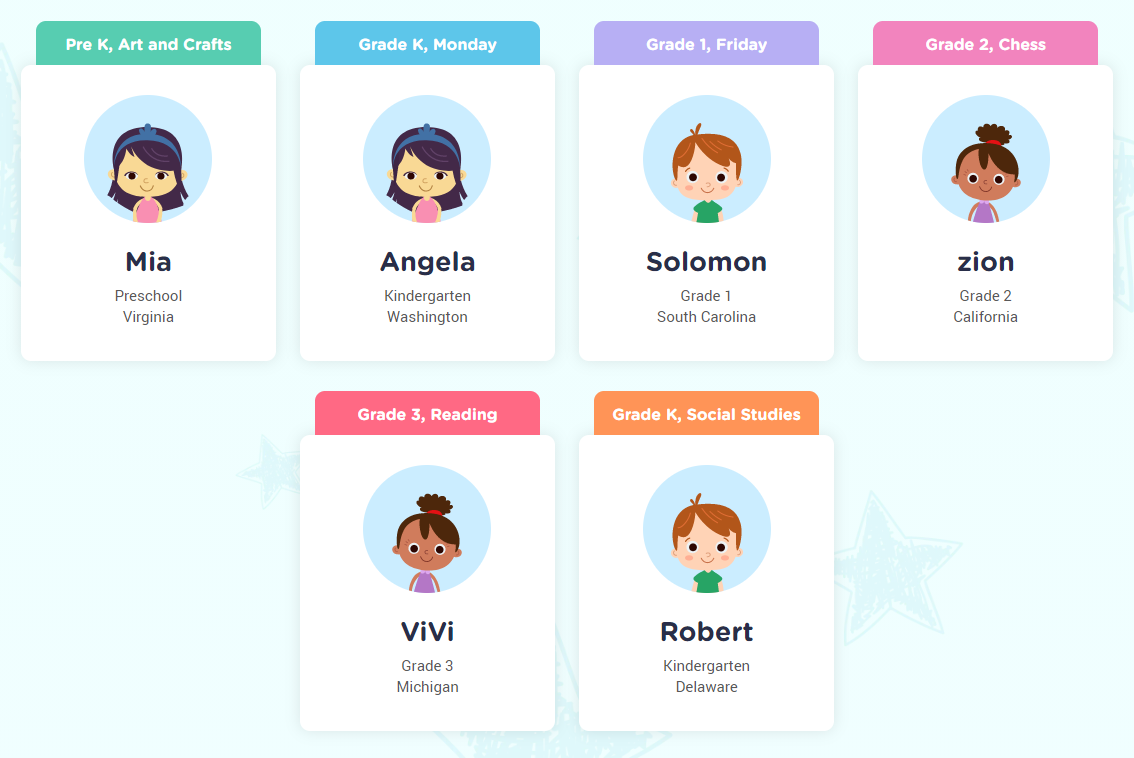

.jpg)

